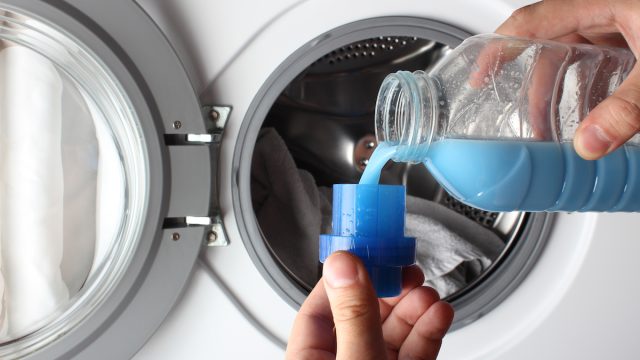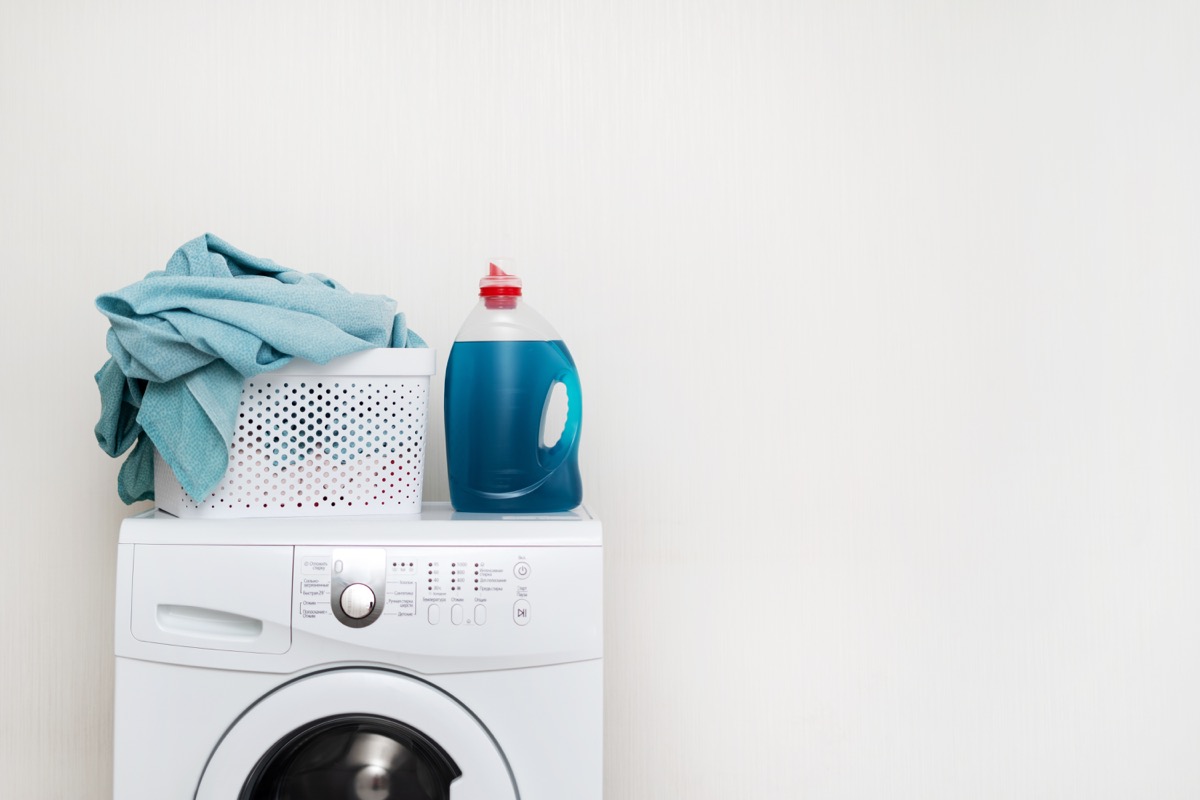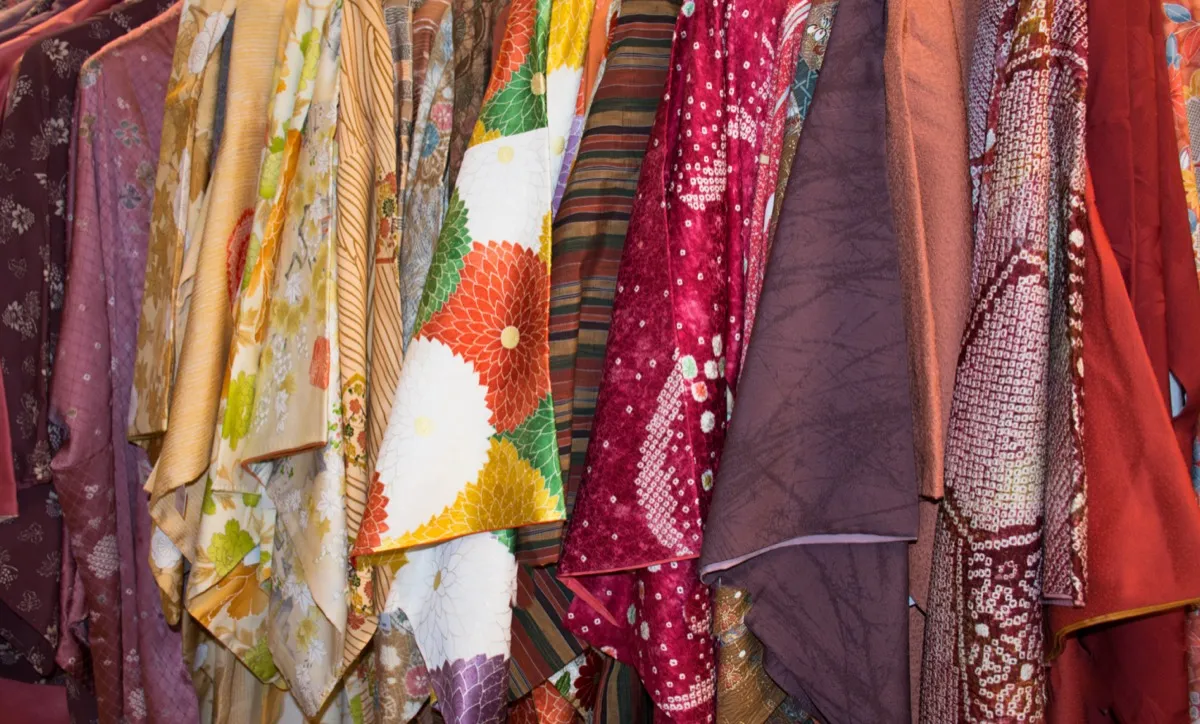5 Pieces of Clothing Fabric Softener Can Ruin

There are few things more frustrating than unloading your washing machine or dryer to realize you’ve ruined a piece of clothing. And, of course, there are so many things that can go wrong. You can accidentally shrink something in the dryer, reinforce a stain by using hot water, or dye an entire load pink by mixing colors. One lesser-known laundry mistake is using fabric softener on materials that can’t handle it. Although this might not result in an immediate stain, it could degrade your items over time. But fear not. We spoke to cleaning experts to get the laundry lowdown. Keep reading to learn which pieces of clothing you should never put with fabric softener.
READ THIS NEXT: The One Thing You Should Never Put in Your Washing Machine, Experts Warn.
What does fabric softener do?

You likely use fabric softener on a regular basis—but do you actually know what it is? According to Phi Dang, director of home services company Sidepost, fabric softeners come in liquid or gel form and are often applied to laundry during the rinse cycle. Dryer sheets fall into this category, too. There are also some laundry detergents that have fabric softeners right in them.
The active ingredient in these products is typically a cationic surfactant. “This surfactant reduces the electrostatic forces between fibers, making them feel softer,” explains Dang. “Fabric softener also often contains fragrance and other chemicals that can leave a fabric feeling refreshed and smelling great.” But in some cases, they do more harm than good. Here are five common examples.
1
Silks

Silk is a delicate material that requires special wash techniques, one of which is to skip fabric softener. “Fabric softener can leave a residue on the fabric that can make it less effective at repelling dirt and stains,” says Dang. “It can also make fabrics less breathable, which can make them more uncomfortable to wear.” Breathability is one of the primary reasons people invest in silk—so you’ll want to maintain that functionality for as long as possible.
READ THIS NEXT: If You’re Using Any of These “Unsafe” Cleaning Products, Stop Now, FDA Warns.
2
Flame-resistant clothing

Today, many clothes for babies (especially infant sleepwear) and adults in high-risk industries are made of flame-resistant materials. These fabrics naturally self-extinguish and eliminate the risk of clothes melting onto the skin to cause a burn in case of a fire. Because they’re technical materials, you need to wash them properly.
“Most people are not aware that their flame-resistant clothing can lose its fire-resistant properties when treated with fabric softener,” says Dang. “The chemicals in the fabric softener can break down the flame-resistant chemicals in the clothing, leaving the wearer vulnerable to burns.” Read the care label closely to ensure you’re not compromising your clothing and, subsequently, your or your child’s safety.
3
Water-repellent clothing

Many of us own various water-repellent jackets, coats, and puffers. And when you clean them, you should not use fabric softener. “Doing so would be counterproductive,” says Dang. “Fabric softener can actually reduce the water repellency of the fabric over time.” An absorbent raincoat is the opposite of effective.
READ THIS NEXT: 1 in 3 People Only Wash These Once a Year, Survey Says.
4
Microfiber clothing

Microfiber is one of our favorite materials for activewear, workout towels, and cleaning towels. It absorbs moisture easily and traps dust with ease. But if you add fabric softener to the mix, those capabilities could be diminished. “Microfiber clothing is made of extremely fine synthetic fibers that are woven together to create a fabric that is lightweight and durable,” says Dang. The softener will cling to those tight fibers and alter them in a non-constructive way.
For more home advice delivered straight to your inbox, sign up for our daily newsletter.
5
Sweaters

Materials like wool, cashmere, and mohair may seem primed for fabric softener (after all, who wants a scratchy sweater?), but this is another clothing item you’ll want to keep from conditioning. Softeners can deplete a sweater’s fluffiness and cause them to lose texture and warmth. Handwash these items with soaps that are specifically made for knits.